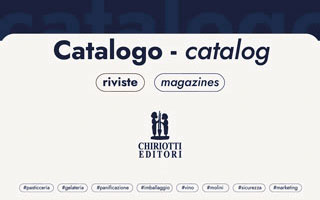
EFSA has confirmed previous evaluations that, based on animal studies, acrylamide in food potentially increases the risk of developing cancer for consumers in all age groups. Acrylamide in food is produced by the same chemical reaction that “browns” food – also making it tastier – during everyday high temperature (+150°C) cooking in the home, catering and food manufacturing. Coffee, fried potato products, biscuits, crackers and crisp breads, soft bread and certain baby foods are important dietary sources of acrylamide. On a body weight basis, children are the most exposed age groups. European and national authorities already recommend reducing acrylamide in food as much as possible and provide dietary and food preparation advice to consumers and food producers.
Last week, EFSA launched a public consultation on its draft scientific opinion on acrylamide in food, developed by the Authority’s expert Panel on Contaminants in the Food Chain (CONTAM). Until 15 September, scientists and other interested parties can comment on the draft opinion through an online public consultation. Before finalising their opinion, Members of the CONTAM Panel will discuss this feedback together with the contributors to the online public consultation at a public meeting later this year.
The Chair of the CONTAM Panel, Dr. Diane Benford, explained key aspects of the Panel’s draft: “Acrylamide consumed orally is absorbed from the gastrointestinal tract, distributed to all organs and extensively metabolised. Glycidamide, one of the main metabolites from this process, is the most likely cause of the gene mutations and tumours seen in animal studies.” Dr. Benford pointed out that “so far, human studies on occupational and dietary exposure to acrylamide have provided limited and inconsistent evidence of increased risk of developing cancer”.
Besides cancer, the Panel also considered possible harmful effects of acrylamide on the nervous system, pre- and post-natal development and male reproduction. These effects were not considered to be a concern, based on current levels of dietary exposure.
The draft opinion includes preliminary recommendations on future research on acrylamide involving humans and also detection and risk assessment methods for germ cell mutation. Data collection activities can also be improved, particularly to provide a more accurate indication of acrylamide levels in food produced and consumed at home.
The deadline for final adoption of the opinion is June 2015. Once finalised, EFSA’s scientific advice will support European and national decision-makers to consider possible measures to further reduce consumer exposure to this substance in food. These may include, for example, advice on eating habits and home-cooking, or controls on commercial food production; however, EFSA plays no direct role in deciding such measures.








